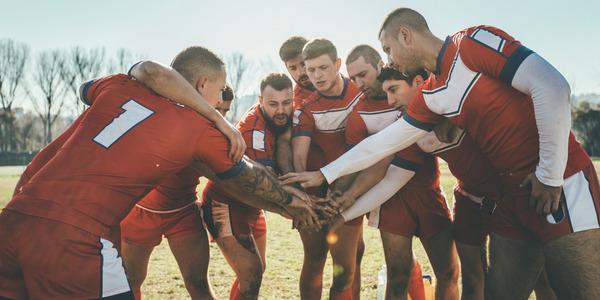
What is your relationship with pressure?
Every athlete sees and experiences pressure differently…
If pressure is your foe, you will try to avoid pressure at all costs. Instead of taking an open shot on goal and risk missing, you will pass the ball. Instead of taking the puck toward the net, you will pass it to avoid a possible mistake.
When you view pressure as unfavorable, you will feel more anxiety that prevents you from seeing your surroundings clearly and playing intuitively.
When pressure is your friend, you can play at your peak more often. Embracing pressure allows pressure to work for you, not against you.
When you manage pressure, you can make the best play instead of the safe one. You will be able to see your opponent clearly and anticipate the action as it unfolds.
Pressure will help you feel energized and excited instead of weighed down and nervous.
Trying to survive pressure or get through a game where pressure doesn’t ruin your performance never leads to peak performance. If you change your relationship with pressure, you will vastly improve your performance.
To change your relationship with pressure, you need to change your view about pressure and performance. Managing in-game pressure puts you in command of the situation and keeps your confidence intact.
Portland Thorns forward Sophia Smith has experienced a significant amount of pressure early in her soccer career.
Smith left Stanford University after two seasons and was selected No. 1 overall in the 2020 NWSL draft. Smith, 22 years old, became the league’s youngest-ever MVP and helped the Thorns win their third NWSL title.
In the championship game against the Kansas City Current, Smith scored the first goal for the Thorns en route to a 2-0 victory. In two years with the Thorns, Smith scored 21 goals.
Even before her professional career, Smith successfully managed pressure when she was called up to the USWNT at sixteen years old.
Smith’s mental edge comes from her ability to transform pressure into energy and a sharpened focus on the field.
SMITH: “Being an athlete is a very challenging thing, and it’s not just challenging physically; it’s challenging mentally. There’s a lot of pressure that comes with it. You know, everyone says pressure is a privilege, and I completely agree with that because I love what I do. And if I didn’t care, I don’t think I’d feel that pressure. So pressure is a good thing to me.”
Peak performance happens when you can allow your skills to shine. When you learn to embrace pressure as helpful, pressure becomes your friend, not foe.
It’s all in your perception… Pressure comes from the expectations to feel to win or perform great. When you can manage the expectations you feel and others, you can view pressure in a different way.
Contact us if you want help with dealing with pressure that leads to under performance or a lack of consistency.
Related Sports Psychology Articles
- The Mindset to Perform at a Higher Level
- Having Fun While Performing at Your Best
- The Importance of Mental Toughness
*Subscribe to The Sports Psychology Podcast on iTunes
*Subscribe to The Sports Psychology Podcast on Spotify
Download a free sports psychology report to improve your mental game!
Learn more about our one-on-one mental game coaching.

The Relaxed Athlete
You can possess all the physical talent in the world, the best equipment money can buy, and train harder or longer than anyone else in your sport or on your team, but if self-doubt enters your mind prior to competition, you simply will not realize your true potential in sports.
The Relaxed Athlete” audio and workbook program teaches you mental strategies to develop a focused and confident pregame routine for a poised and relaxed mindset. Learn how to get your mind right by overcoming pregame anxiety and worry.
